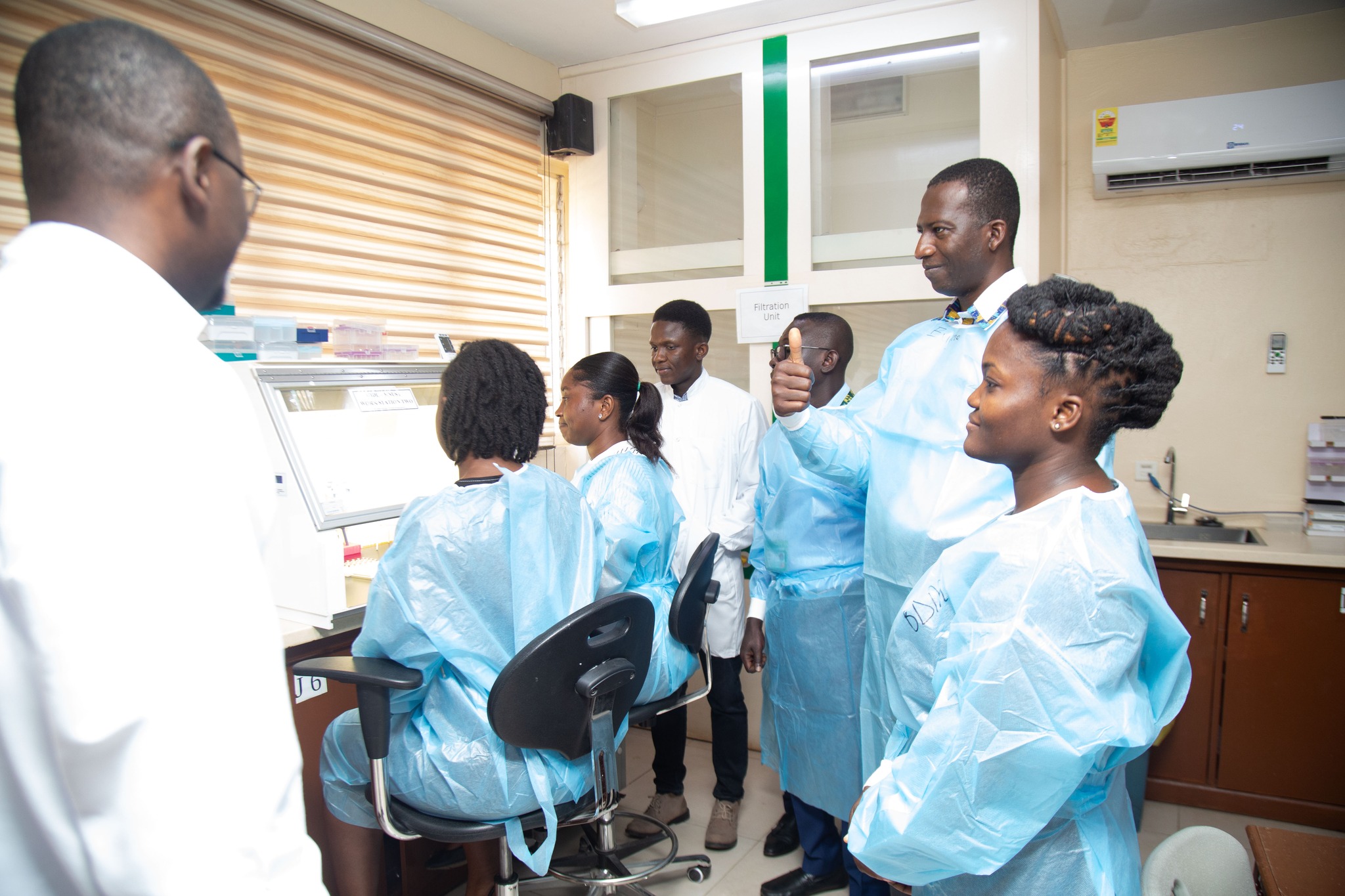
The Genomics and Infectious Disease Laboratory (GIDL) of the Kwame Nkrumah University of Science and Technology (KNUST) has successfully hosted the second phase of a national capacity-building training on Pathogen Discovery and Metagenomics, aimed at strengthening Ghana’s genomic surveillance and public health diagnostic capacity.
The training, which took place from October 6–20, 2025, formed part of a broader initiative led by the Centre for Health Systems Strengthening (CfHSS) with funding from the U.S. Centers for Disease Control and Prevention (CDC) under the Global Health Security Agenda (GHSA). The program was implemented in partnership with the Association of Public Health Laboratories (APHL), KNUST, and the Ghana Health Service (GHS).
Empowering Laboratories Through Genomic Innovation
Building on the first phase held at the National Public Health Reference Laboratory (NPHRL) in Accra, the second phase at GIDL focused on pathogen discovery and metagenomic applications for public health surveillance. The wet-lab sessions were conducted entirely at GIDL, where participants gained hands-on experience in sample processing, sequencing workflows using Oxford Nanopore Technology (ONT), and bioinformatics analyses for identifying and characterizing microbial communities.
Facilitators from APHL guided participants through modules covering genomic data generation, genome assembly, microbial profiling, and data visualization using international bioinformatics platforms including Geneous, Galaxy, Czid and Terra.bio.
The opening session was graced by Professor Christian Agyare, Provost of the College of Health Sciences, KNUST, who commended CfHSS and its partners for championing the development of genomic capacity within Ghana’s scientific and public health communities. He emphasized the growing importance of metagenomics in addressing emerging and re-emerging infectious diseases and encouraged participants to translate the skills acquired into impactful public health action.
Advancing Genomic Research Capacity at KNUST
Hosting this national training at GIDL–KNUST reflects the University’s commitment to advancing research excellence, laboratory innovation, and capacity building in genomics and infectious disease diagnostics.
The Director of GIDL expressed appreciation to CfHSS, APHL, and CDC for their continued collaboration and reaffirmed GIDL’s role as a regional hub for genomic research and training:
“This training not only strengthens Ghana’s surveillance systems but also positions KNUST as a center of excellence for genomic innovation and scientific advancement in West Africa.”
Through such collaborative initiatives, GIDL–KNUST continues to contribute meaningfully to Ghana’s national genomic surveillance strategy and global health security efforts.
Wet lab session at the GIDL.

